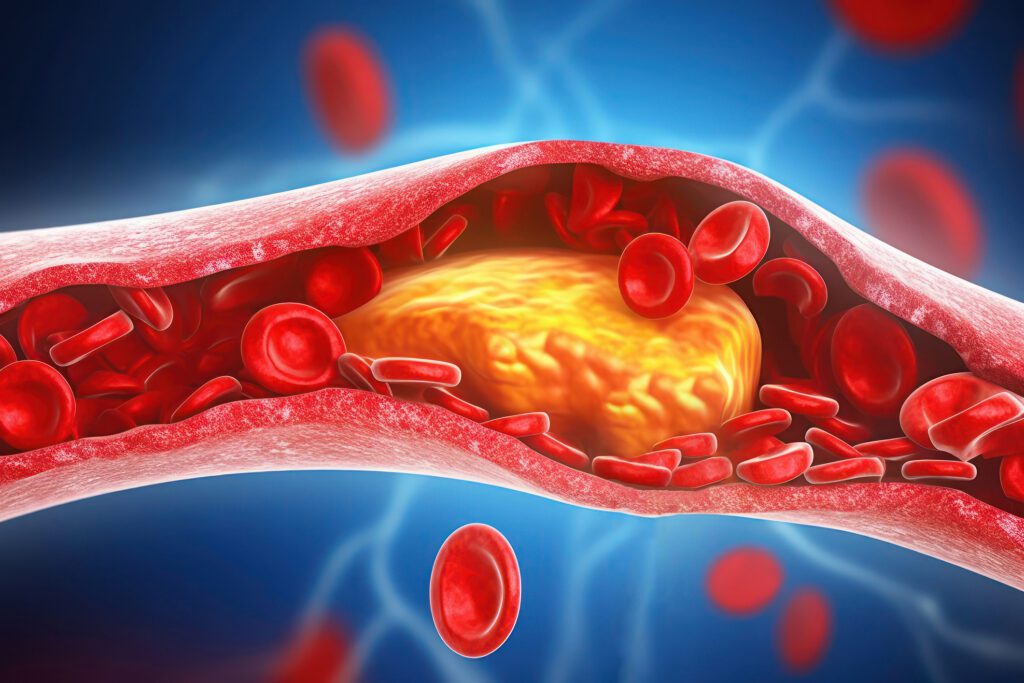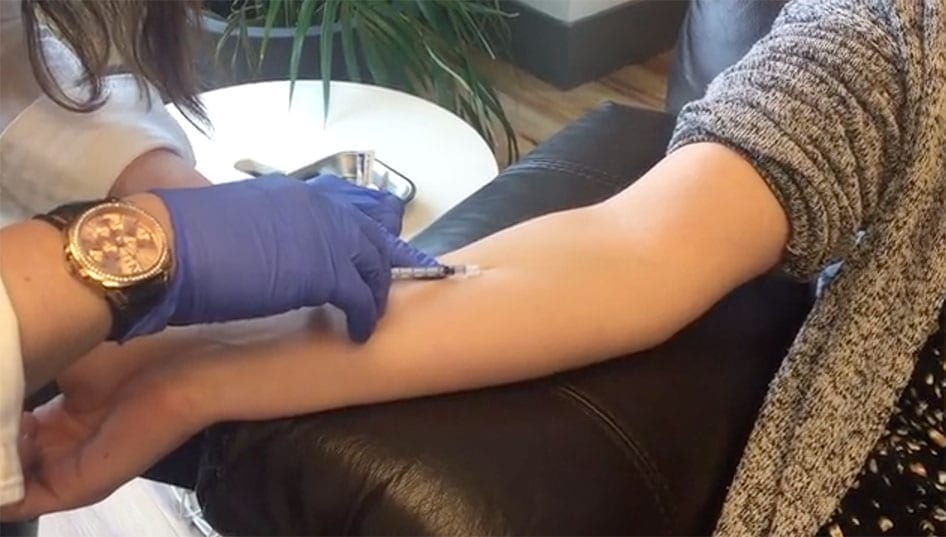Have you been feeling tired and down for months with no explanation? Dysfunction in your body’s thyroid gland could be the culprit. This small gland plays an integral role in regulating your body’s metabolism and too much stress combined with lifestyle and dietary deficiencies can be to blame for its malfunctioning.
What is the Thyroid Gland?
The thyroid is a small gland located at the front of your throat. Despite being small, this gland regulates the metabolic rate of the cells in your entire body.
When your thyroid is functioning properly you feel awake, positive and energized. On the other hand, when the thyroid is malfunctioning, it can cause feelings of depression, tiredness and physical symptoms such as weight gain.
How Does the Thyroid Work?
Your thyroid controls your metabolism by producing several key hormones. These include T4 (Thyroxine) and T3 (Triiodothyronine). The levels of thyroid hormones are regulated in your body by the pituitary gland, located in the hypothalamus.
This gland releases TSH or Thyroid-stimulating hormones, if it notices an imbalance in your thyroid hormone levels. The thyroid will then be stimulated to correct this balance.
Thyroid Diseases & Symptoms
Men, women and children of all ages can experience different types of illnesses related to the thyroid. However, thyroid malfunction is more common in women, specifically following hormonal changes and events such as pregnancy and menopause.
Some of the more common diagnosis of thyroid disorders include:
- Thyroid cancer
- Hyperthyroidism
- Hypothyroidism
- Graves disease
- Hashimoto’s Autoimmune disease
- Thyroiditis
- Thyroid nodules
- Gout
It can be difficult to identify the symptoms of thyroid disorders, as they vary depending upon the illness you have.
The most common thyroid disorder is hypothyroidism – this causes your metabolism to slow down and become sluggish. Hyperthyroidism is also common however, and it has the opposite effects.
Symptoms of Hypothyroidism
- Weight gain
- Constipation
- Feeling cold
- Depression
- Feeling lethargic
- Hair loss
- Brittle, sparse hair
- Brain fog
- Extreme tiredness
Symptoms of Hyperthyroidism
- Rapid weight loss
- Fast or irregular heart beat
- Nervousness
- Anxiety
- Hand tremors
- Feeling warm or sweating excessively
- Fine hair
Testing To Determine Thyroid Malfunction
Blood tests
When a patient is concerned about the functioning of their thyroid, one of the fastest and easiest tests is a blood test to check TSH levels.
If these levels are unusually high or low in your body, it indicates that your pituitary gland is reacting to an under or overactive thyroid. Further testing is often needed but this is the first step to identifying a problem.
Doctors will also test for T4 and T3 hormones in more detailed testing. Often TSH levels alone are not enough to diagnose a thyroid disorder, they simply indicate that further testing is needed.
Physical examination
Your doctor may perform a physical examination of the thyroid. This is done by feeling the front of a patient’s neck area to identify any nodules, pain or abnormalities. Your doctor will feel the area to determine whether or not the thyroid feels enlarged and may ask you to swallow so that they can see if it bulges out abnormally in your throat.
Imaging
An additional form of testing is imaging. Your doctor may order an ultrasound of your thyroid. These are safer than x-rays for the soft thyroid tissue and can help identify physical abnormalities within the thyroid.
Ultrasounds are safe and painless procedures. Your technician will simply apply a cool gel to the front of your neck and gently move the ultrasound wand over the area where your thyroid is situated. The test should take no longer than 30 minutes.
What Causes Thyroid Disorders?
- Lack of iodine in the body (or sometimes, too much iodine)
- Diseases that affect the immune system & autoimmune disorders
- Inflammation in the body
- Certain medications
- Treatments for other diseases such as radiation
- Inherited and genetic disorders
- In rare cases pregnancy can worsen existing thyroid problems
- Chronic stress
- Adrenal fatigue
- Gluten sensitivities
- Heavy metal toxicity
Traditional Treatments for Thyroid Disorders
In traditional medicine, the range that determines whether or not your thyroid needs treatment is quite wide. Often, patients who are experiencing symptoms of thyroid disorders do not get the proper treatment or diagnosis they need because they still fall within a ‘normal’ range according to their test results.
Being on the high or low end of the spectrum can indicate future potential problems which can be avoided by proactive care.
However, many doctors will only treat patients once there is already an existing problem that is clearly outside of the normal range. This is because the treatment for thyroid disorders can be intensive. It can range from daily medications to thyroid removal surgery.
If you have ‘normal’ test results and are still experiencing symptoms, it’s important to be proactive about the results and determine where you fall in the range of what doctors call ‘normal’.
Medication
Synthetic hormones that work to mimic your natural thyroid hormones are often used to treat thyroid disorders. They work to produce the hormones your body needs when your thyroid is very underactive, but your body can also become dependent on these synthetic hormones.
Desiccated thyroid hormone is a bioidentical porcine glandular medication that can support thyroid function. This is not the first choice of medication in conventional medicine, but upwards of 80% of patients will often feel better switching over to desiccated thyroid. Not only is this hormone better utilized in the human body, it also has active T3 thyroid hormone which helps aid in thyroid conversion issues – not addressed with typical synthetic hormones. Most patients are unaware that the conversion of T4 into T3 requires a great deal of energy and a replete nutrient status to get the job done.
Methimazole and propylthiouracil are the two most common prescriptions for hyperthyroidism. These work to prevent your thyroid from making too much of certain hormones. These two medications are used most often for hyperthyroidism and work to limit the amount of hormones the thyroid is making.
Radioactive Iodine Therapy
This treatment is often used to treat thyroid cancer. It is relatively straightforward, the thyroid gland absorbs iodine in the body, so radioactive iodine can work to eliminate cancer cells in the thyroid, without having too much of a negative effect on the rest of the body.
Thyroid Removal Surgery
In some more extreme cases, parts, or all of the thyroid can be removed. This can be needed when there are large thyroid nodules, or tumors that do not respond to radiation.
Healing your Thyroid Naturally
Restoring your thyroid health is possible with natural treatment. Doctors will prescribe heavy medications for thyroid diseases and the body will often become dependent on them.
Dr. Emina aims to target her treatment plans around your specific needs. She will factor in lifestyle, existing illnesses and your body’s hormones into the picture. Not all patients are the same and your treatment method should reflect that.
Making sure you have a healthy and functioning thyroid is so important now and for the future. Natural thyroid treatments include Wilson’s Temperature Syndrome & Protocol as well as herbal treatments and lifestyle changes.
If you are ready to take control over your thyroid health, contact Dr. Emina and get a personalized treatment plan to address and correct your symptoms naturally.
Sources:
https://www.cancer.org/cancer/thyroid-cancer/treating/radioactive-iodine.html
https://www.healthdirect.gov.au/causes-of-thyroid-problems
https://www.healthline.com/health/hypothyroidism/five-natural-remedies-for-hypothyroidism
https://www.webmd.com/women/features/low-thyroid-alternative-therapy
https://www.mayoclinic.org/diseases-conditions/thyroid-cancer/diagnosis-treatment/drc-20354167
https://cancer.ca/en/cancer-information/cancer-types/thyroid/treatment/surgery






